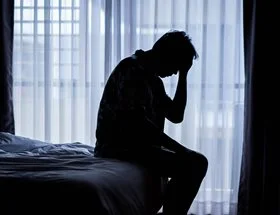
Reduce your drinking
Find tips, strategies and advice to help you reduce your drinking.
The day after drinking alcohol a person may experience symptoms known as a hangover. The main cause of a hangover is the toxic effects of ethanol.
When you have a hangover it’s your body trying to protect itself from alcohol’s toxic effects.
A hangover is when your body is:
A hangover can begin within hours of the last drink as your blood alcohol level begins to drop. The more you drink, the more likely you are to experience a hangover.

The severity of hangover symptoms depends on many factors. Hangover symptoms can last up to 24 hours after alcohol has left the blood.1 They usually peak when your blood alcohol level drops to zero. Common hangover symptoms include:
When the body breaks down alcohol, it creates acetaldehyde, a highly toxic chemical and known carcinogen. High levels of acetaldehyde in the body can cause symptoms commonly associated with a hangover:
In the long-term, this process can cause permanent damage at the cellular level and lead to cancer.
Alcohol triggers an inflammatory response from your immune system. This can impact:
Alcohol is a diuretic which makes you urinate more, which can lead to dehydration. Short-term effects include:
While some people might fall asleep more quickly after drinking, you are less likely to get the sleep you need to wake feeling refreshed.
Alcohol can cause our sleep to be broken or shallow, which can lead to intensify hangover symptoms and cause fatigue, brain fog, and low mood.
Alcohol irritates and inflames the stomach and intestine lining which can cause:
In the long-term, this can lead to chronic inflamed lining (gastritis), stomach ulcers and digestive problems.
Prevent getting a hangover by drinking less alcohol, staying hydrated, and only having an alcoholic drink with or after food.
If you feel like you’re dealing with hangovers often or are worried about your symptoms, chat your doctor (GP) or contact a support line.
Page last updated15 December 2025